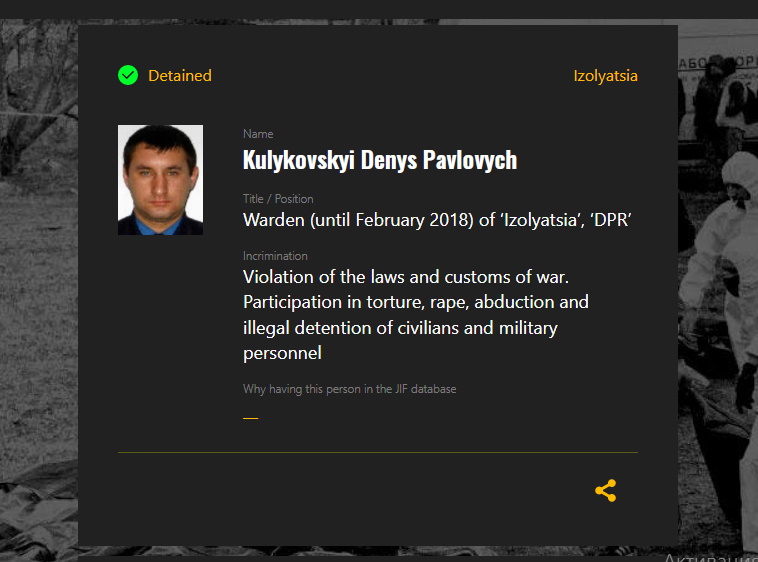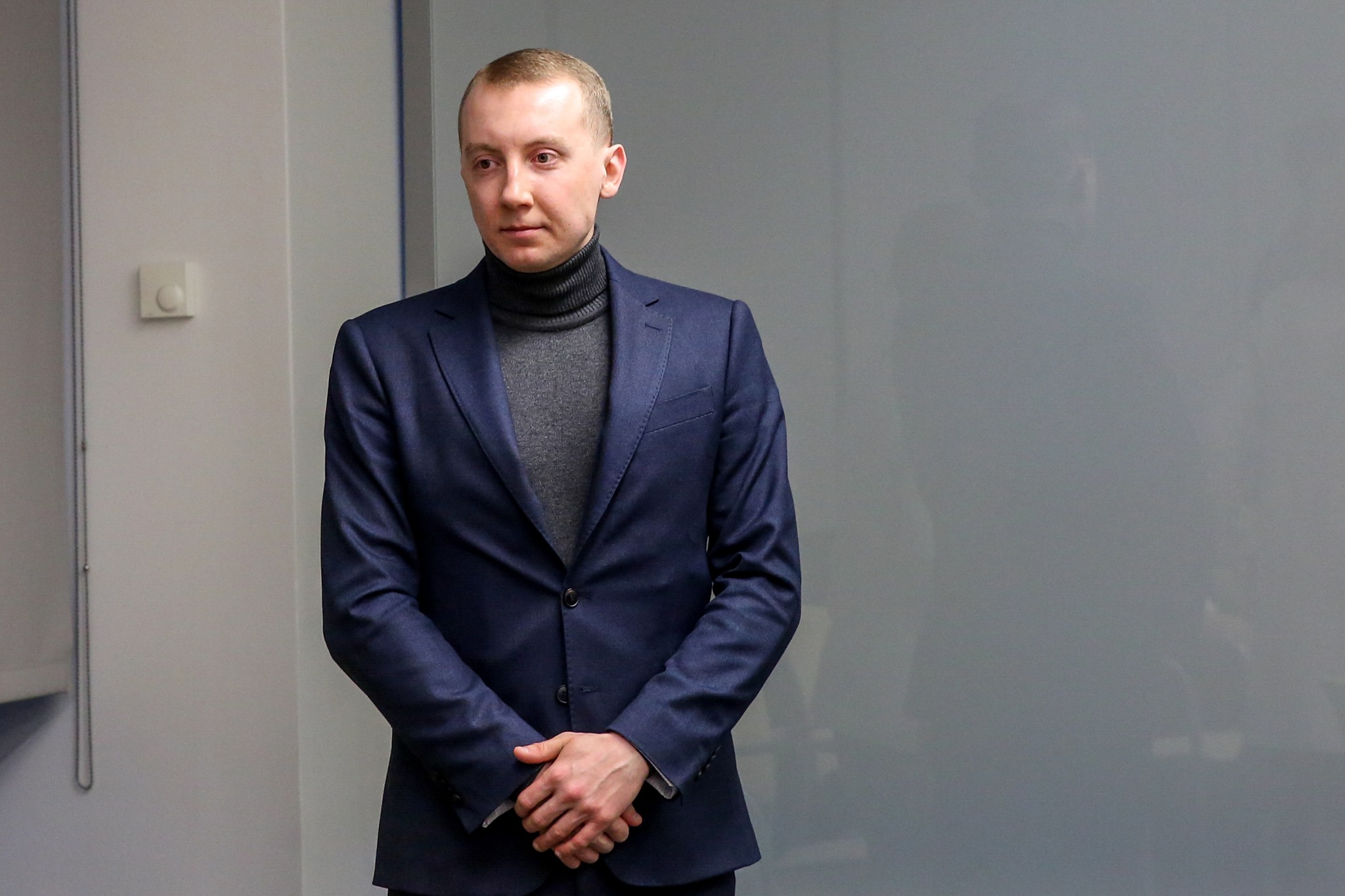In 2017 Russian separatist forces detained Ukrainian journalist Stanislav Aseyev in Donetsk while he was covering news for RFE/RL. The occupation court accused him of espionage and extremism and sentenced him to 15 years in jail. Aseyev spent 28 months in the secret torture camp Izolyatsia where Russian wardens repeatedly tortured and beat him and other inmates. In 2019, he was released during a prisoner exchange.
After the beginning of the full-blown invasion, Aseyev set up the Justice Initiative Fund (JIF) to punish Russia’s war criminals. The fund offers rewards for information on those responsible for the suffering of Ukrainians.
“The idea is simple: no one can come to Ukraine, rape its women, torture its men – and return to Russia thinking they will get away with it,” Aseyev explained.
How do donations help gather more details on Russia’s war criminals?
The concept of the Justice Initiative Fund was born after Ukraine seized the chief butcher of the Izolyatsia camp Denys Kulykovskyi.
Aseyev accidentally learned that his torturer had been living in Kyiv and, together with Bellingcat executive director Christo Grozev delivered the information on him to Ukrainian special services, RFE/RL reported.
Later, Kulikovsky, whom Aseyev described as a “sadist, rapist, executioner, and alcoholic” in his book about imprisonment in Donetsk, was detained. That was the moment when the Ukrainian journalist began to seek ways to capture more of Russia’s war criminals.

Today, the official JIF website is a crowdfunding platform that collects donations to motivate informants to reveal details about war criminals. Agents of Russian special services are the target audience of the fund, Stanislav said during an interview with Voice of America. Large payments should encourage collaborators to leak data.
Yet, the journalist assumes that Russia’s economy will soon decline and the ruble will plunge to a 1990-low due to brutal military aggression. Then, he believes, Russians will stand in queues to hand over secret details and evidence.
What does the fund pay for?
The JIF, which cooperates with Ukrainian intelligence, created a “portfolio” of Russia’s war criminals officially suspected by international or Ukrainian courts for torturing prisoners of the Donetsk camp, atrocities in Bucha and Kyiv Oblast, and sexual violence.
Three Russian proxies from the so-called Donetsk People’s Republic, accused of violation of customs of war by the Dutch Prosecutor’s Office, belong to another category of criminals – responsible for the MH17 downing and killing of 298 passengers on board.

Upon the 18 November ruling of the Hague District Court, Igor Girkin, Sergey Dubinskiy, and Leonid Kharchenko should pay $16 million to the families of MH17 victims as compensation for their crimes. Also, they received life imprisonment sentences. The JIF joins western justice institutions and proposes nearly an $8,000 reward for those who would transfer Girkin to Ukrainian or international law enforcement agencies.
The platform also pays for information that will directly lead to the prosecution of the suspect, including his/her arrest and new pieces of evidence of crimes committed by specified persons on the criminals’ list. Conversations take place on the darknet to guarantee the privacy of sharing secret information.
The public JIF team includes writer and human rights defender Janine di Giovanni, religious scholar Igor Kozlovsky, FBI veteran Karen Greenway, former Russian prisoner paramedic Julia “Taira” Paevska, lawyer and veteran Masi Nayyem, and war correspondent Andriy Dubchak.
Related:




